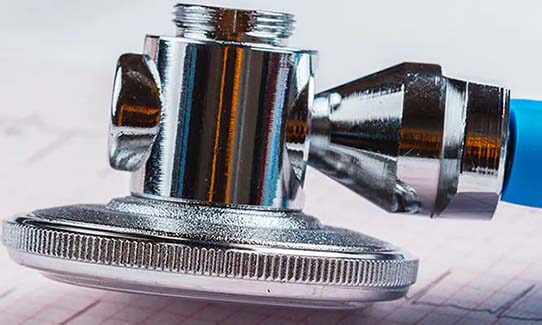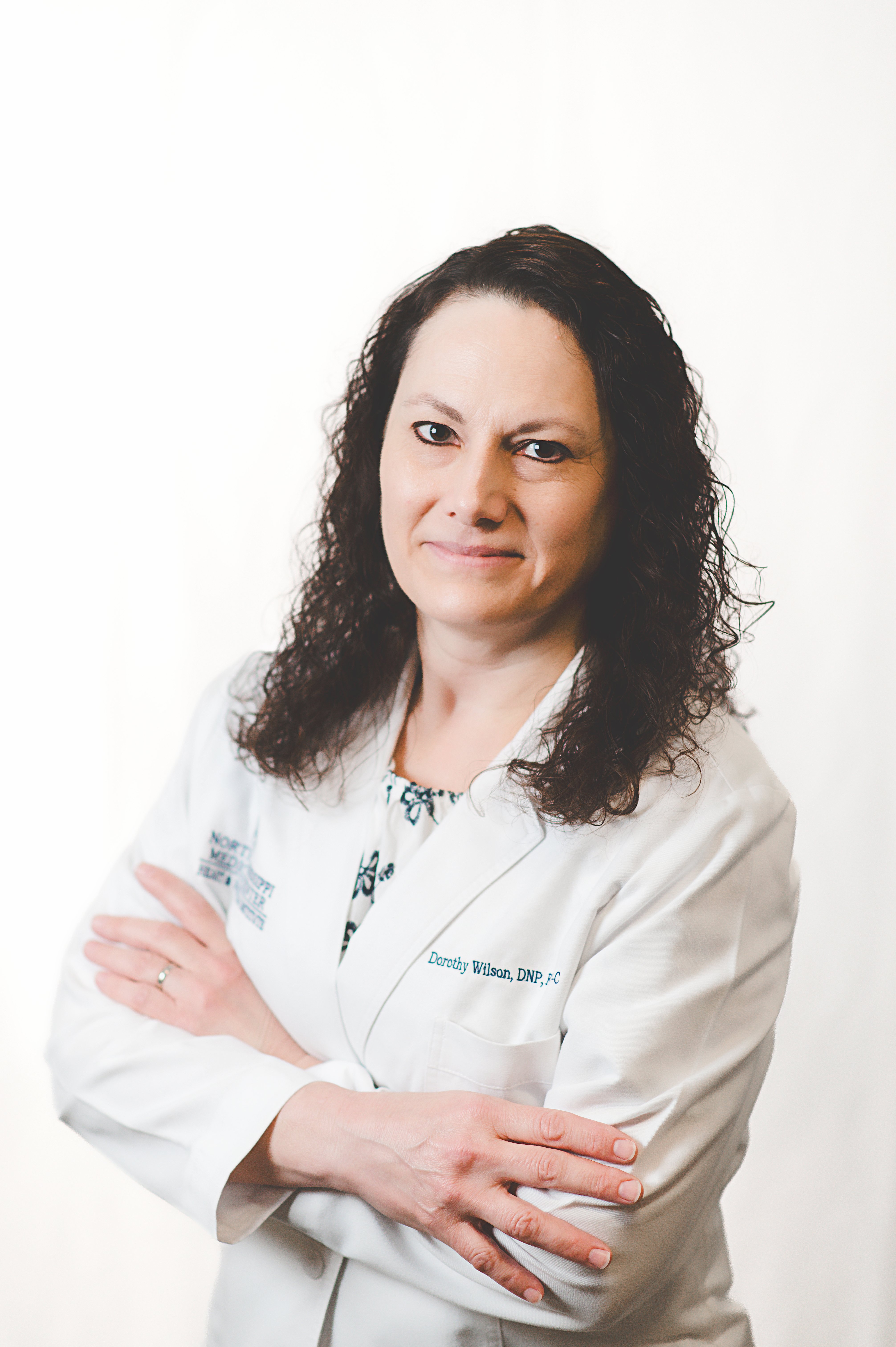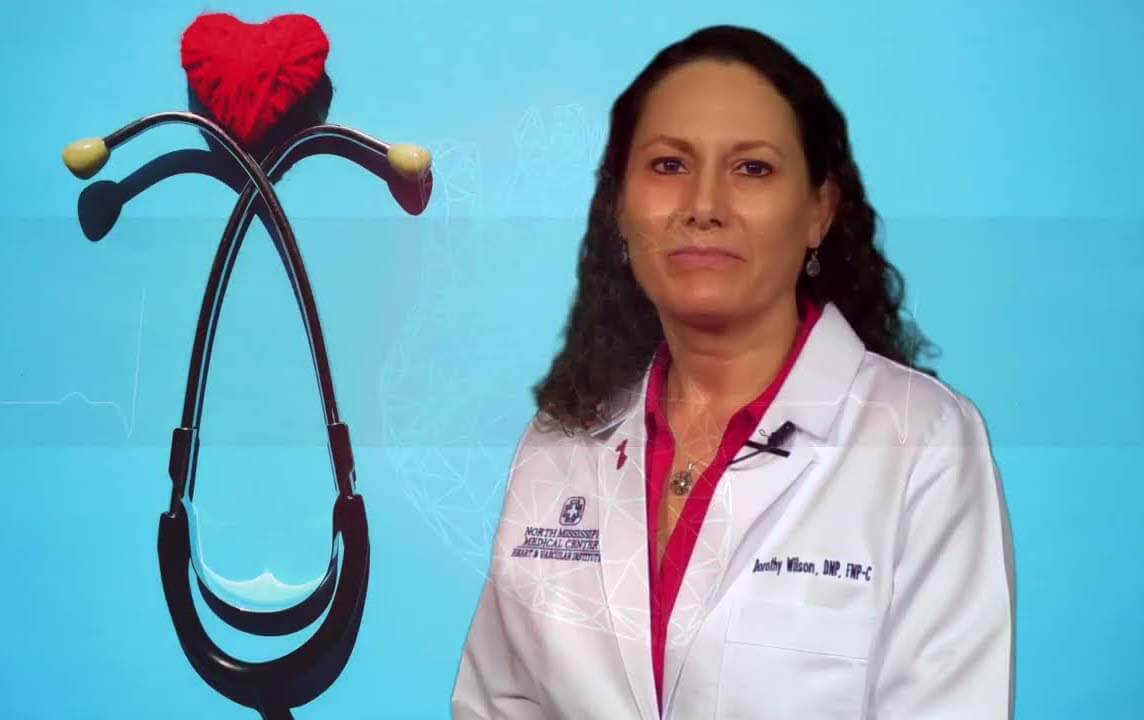

Feb 15 2023
All About A-Fib


Summary
Atrial fibrillation, commonly called A-fib, is an irregular heart rhythm that originates in the atria or top chambers of the heart and increases risk of stroke.
Atrial fibrillation, commonly called A-fib, is an irregular heart rhythm that originates in the atria or top chambers of the heart. The upper chambers beat out of rhythm with the bottom chambers, with the top chambers “quivering.”
Atrial fibrillation is the most common heart arrhythmia. It is more common in individuals of European descent than African Americans. More women than men have atrial fibrillation because of their longer life span. Your risk for atrial fibrillation increases with age.
Symptoms
- Heart palpitations, irregular heartbeat, fluttering or skipped beats
- Shortness of breath both at rest and with activities
- Dizziness
- Fatigue
- Weakness
- Chest discomfort
Some individuals will have no symptoms with atrial fibrillation and it is found incidentally on a routine exam.
Causes
Atrial fibrillation may be caused by various health or environmental issues, including:
- High blood pressure
- Heart failure
- Cardiomyopathy
- Coronary artery disease
- Heart valve disease
- Previous heart surgery
- Congenital heart disease
- Birth defects involving the heart
- Chronic lung disease such as COPD, asthma and emphysema
- Pulmonary embolism (blood clot in the lungs)
- Thyroid problems
Environmental issues that can cause atrial fibrillation include:
- Excessive caffeine consumption
- Excessive alcohol intake (including binge drinking)
- Stress
However, in some individuals, there is no known cause of their atrial fibrillation.
Treatments
Various treatments help with the symptoms of atrial fibrillation:
- Medications (antiarrhythmics) to help maintain a normal heart rhythm
- Cardioversion, or shock to the heart, to restore normal heart rhythm
- Ablation to target the source of the chaotic electrical impulses in the heart
- Maze procedure to create scar tissue in the upper chambers of the heart
- Permanently implanted devices such as pacemakers or loop recorders
Consequences
Atrial fibrillation increases stroke risk. An individual with atrial fibrillation is five times more likely to have a stroke than someone without it. When the heart does not squeeze properly, it allows blood to pool in the upper chambers of the heart, creating the opportunity for blood to clot. These blood clots can then move out of the heart and travel to the brain, blocking blood supply and causing a stoke.
Atrial fibrillation can also lead to heart failure when heart rates are uncontrolled. This is because the heart is not efficiently pumping blood to the lungs and body.
Preventing Stroke
Oral anticoagulation medication (“blood thinners”) increase the time it takes for blood to clot. While very effective, these medications can have side effects including gastrointestinal bleeding, brain bleeding, frequent falls and excessive bruising. For individuals for whom long-term use of blood thinners is problematic, there is an alternative.
In people with atrial fibrillation, more than 90% of stoke-causing clots come from the left atrial appendage. Devices to occlude this area have been developed. The device is placed in the left atrial appendage, a small area on the upper left chamber of the heart. The U.S. Food and Drug Administration has so far approved two such devices, Watchman (made by Boston Scientific approved in 2015) and Amulet (made by Abbott and approved in 2021). Other devices are now in research trials.
To learn more about atrial fibrillation, talk to your primary care provider or contact us at the NMMC Heart and Vascular Institute.


Dorothy Wilson, DNP, FNP-C
Dorothy Wilson, DNP, FNP-C, is a nurse practitioner with North Mississippi Medical Center's Heart and Vascular Institute. Dorothy served five years of active duty with the U.S. Army. She earned bachelor’s and master’s degrees in information technology from Strayer University before becoming a nurse. She earned her associate degree in nursing from Itawamba Community College and her bachelor’s degree in nursing from Mississippi University for Women. She earned her master’s and doctoral degrees in nursing from the University of South Alabama in Mobile. Dorothy joined the NMMC staff in 2012.
If you're over 35, schedule a heart screening to identify your risk of heart disease. Request an appointment online or call 1-800-THE DESK (1-800-843-3375).

Subscribe to Our Newsletter
Like this content and want to get more? Sign up for True North, the health and wellness newsletter from North Mississippi Health Services!

Subscribe to Our Newsletter
Like this content and want to get more? Sign up for True North, the health and wellness newsletter from North Mississippi Health Services!

Nurse Link®
Not sure if you need Urgent Care or the ER? Call 1-800-882-6274 anytime to speak directly to a registered nurse and get immediate answers. Using computerized medical protocols, nurses direct callers to the most appropriate treatment. Our nurses are available 24 hours per day, seven days per week.
